The awarded projects this time cover multiple key areas from infrastructure to application layers.
Author: Deep Tide TechFlow
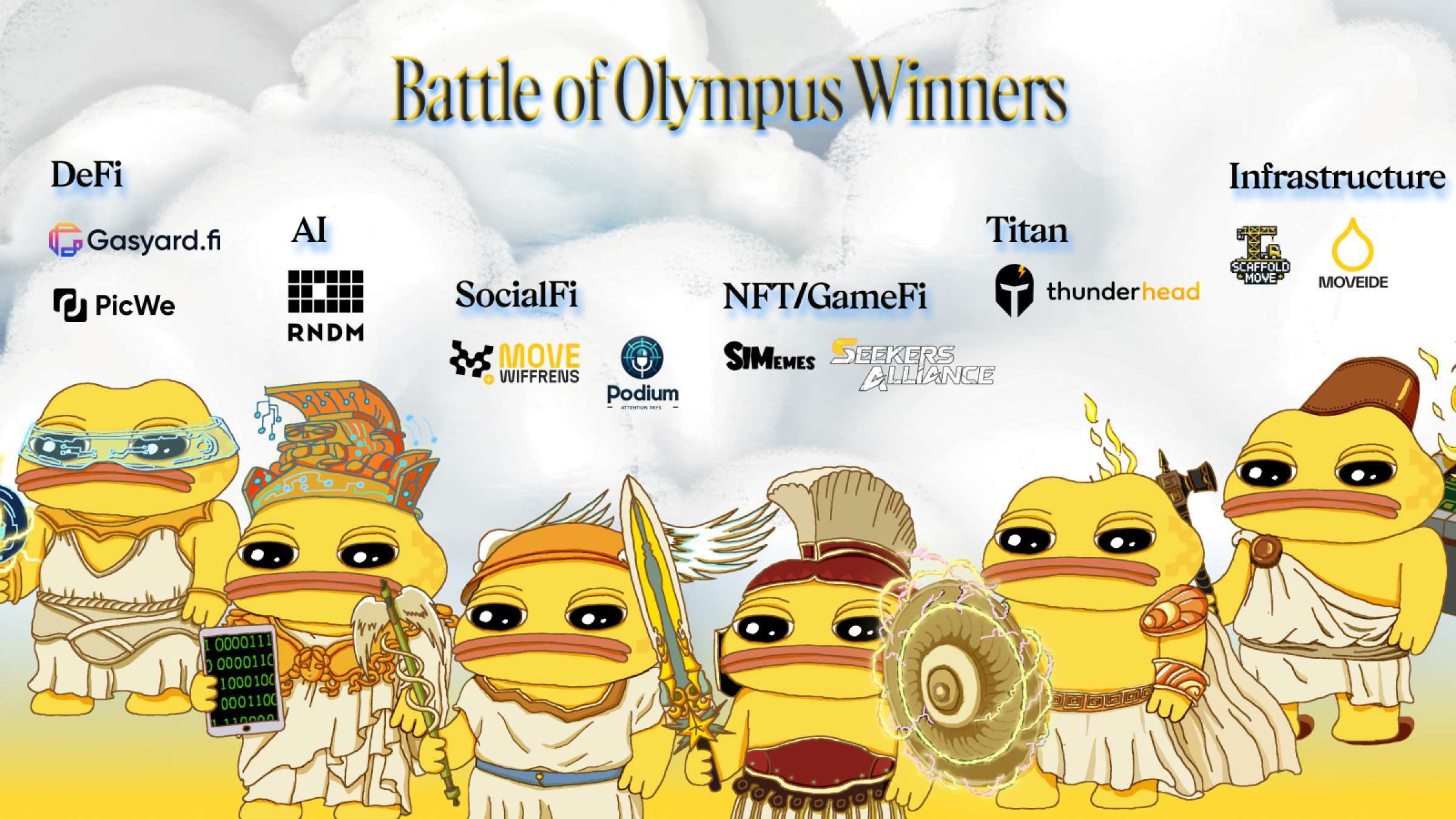
As another public chain that the market has dubbed a "Ethereum killer," Movement, developed alongside Sui and Aptos with the same programming language, is also one of the most anticipated public chains this year. (For more on Movement, see: Movement: Bringing Move to EVM, Reshaping Ethereum Ecosystem Security)
Recently, Movement's hackathon Battle of Olympus successfully concluded, with a total of 2,100 project applications, and ultimately 10 projects across different tracks were awarded.
As the cream of the crop, what highlights do these projects have? This article will introduce the awarded projects to help readers understand them and further explore the Movement ecosystem.
Titan Category
Deep Tide Note: The "Titan" category refers to projects that have been operating within the Movement ecosystem for some time. Additionally, each project can be clicked to view its social media account for ongoing updates.
StakedMove (by Thunderhead): The first LST protocol in the Movement ecosystem
StakedMove is developed by the established team in the liquid staking track, Thunder Head Labs. It aims to provide $MOVE holders with services that ensure asset liquidity while earning additional protocol rewards.
Users can stake their $MOVE into StakedMove and receive a 1:1 exchange for the LST certificate $stMOVE. While enjoying staking rewards, they can also use $stMOVE to participate in other DeFi projects. Protocol rewards are automatically distributed through daily rebases. Users only need to hold $stMOVE to automatically receive these rewards without any additional actions.
StakedMove offers various ways to unstake:
Instant Exchange: Users can immediately exchange $stMOVE back to $MOVE.
DEX Trading: Users can sell $stMOVE at a small discount on third-party decentralized exchanges.
Regular Unstaking: Users can submit an unstaking request and receive $MOVE after a 30-minute wait.
StakedMove's design language is very simple; users just need to connect their wallet and stake $MOVE on the homepage to complete the entire staking process and immediately receive $stMOVE to start earning rewards.
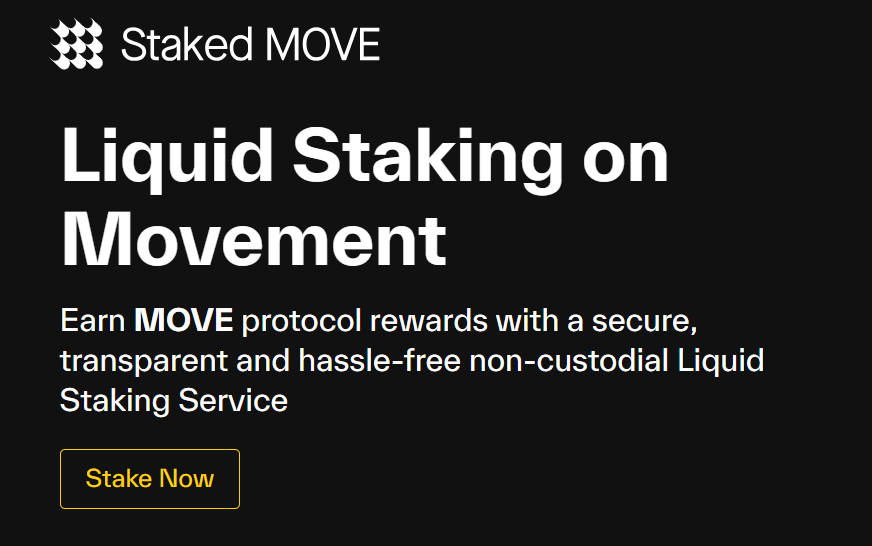
DeFi
Gasyard: Cross-chain Gas Optimization Protocol
For DeFi users who frequently need to cross chains, high gas fees have always been a problem. Gasyard aims to optimize gas fees for cross-chain transactions, improving user experience and lowering the entry barrier for on-chain operations.
Gasyard significantly enhances cross-chain transaction speed, compressing cross-chain time to about 1 minute. It supports many EVM-compatible chains and is not limited by predefined routes, focusing on bridging native tokens. By simplifying the transaction process and removing the complexities associated with ERC20 tokens, it means a faster and more direct cross-chain experience for users without worrying about compatibility issues between different types of tokens.
Gasyard employs a collateral-based bridging model, utilizing Chainlink's data sources to calculate and manage collateral, and uses Turnkey technology to protect relay keys, ensuring cross-chain transaction security and reliability.
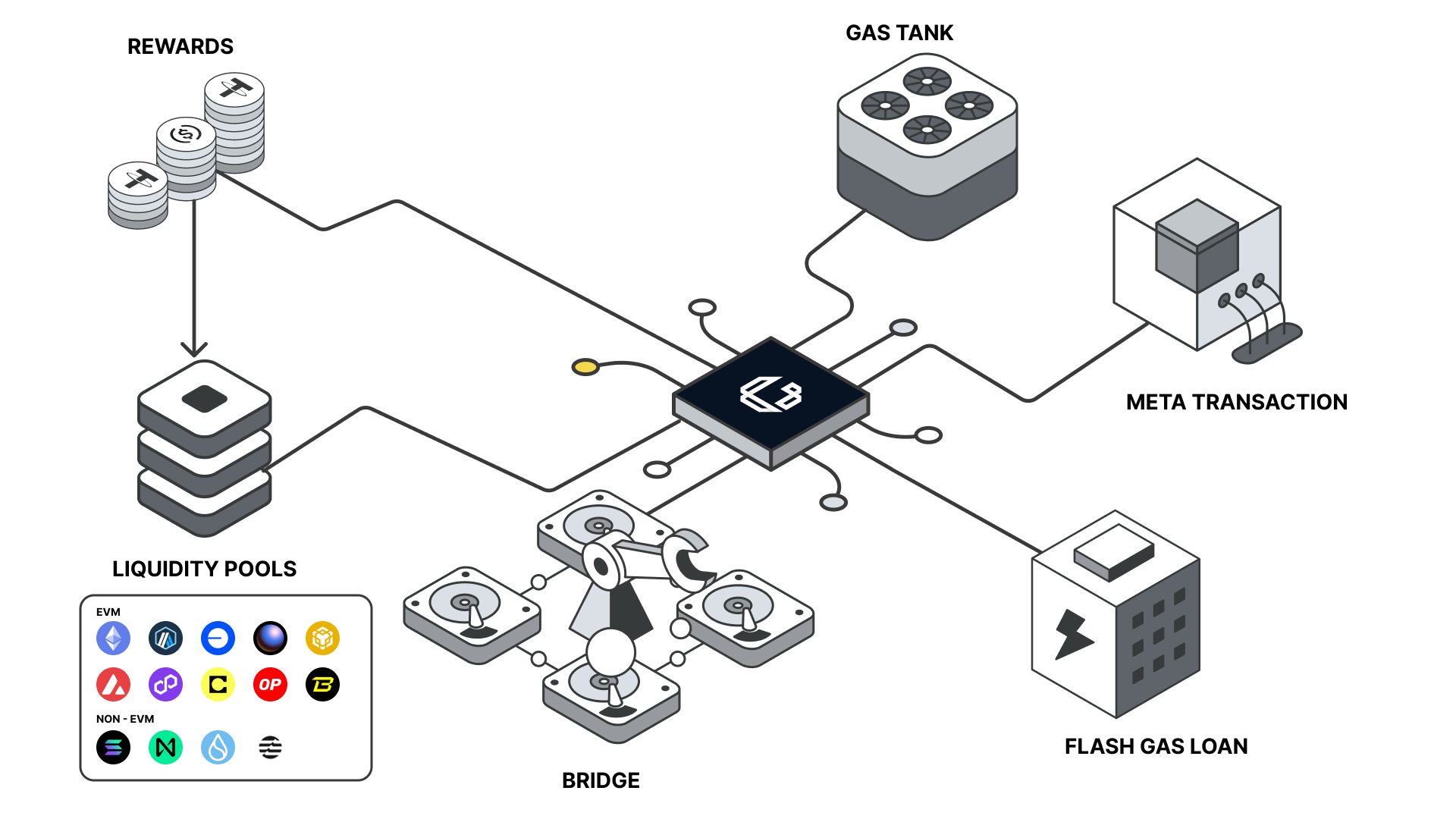
PicWe: A fully decentralized social and trading platform that simplifies user entry
PicWe is a fully decentralized social and trading platform that aims to simplify cross-chain trading.
The workflow of PicWe is quite straightforward: connect wallet → select public chain → trade tokens. Users can trade tokens from other chains using USDT on a specific public chain through PicWe, without going through traditional bridging, and at a lower cost than traditional bridging methods. Users do not need to learn complex multi-chain technologies; the trading process is simple and quick.
Unlike centralized exchanges, PicWe ensures that users have 100% ownership of their cryptocurrencies. As the platform upgrades and the number of users increases, cross-chain trading times will continue to shorten. The platform has attracted over 10,000 traders and community members to participate.
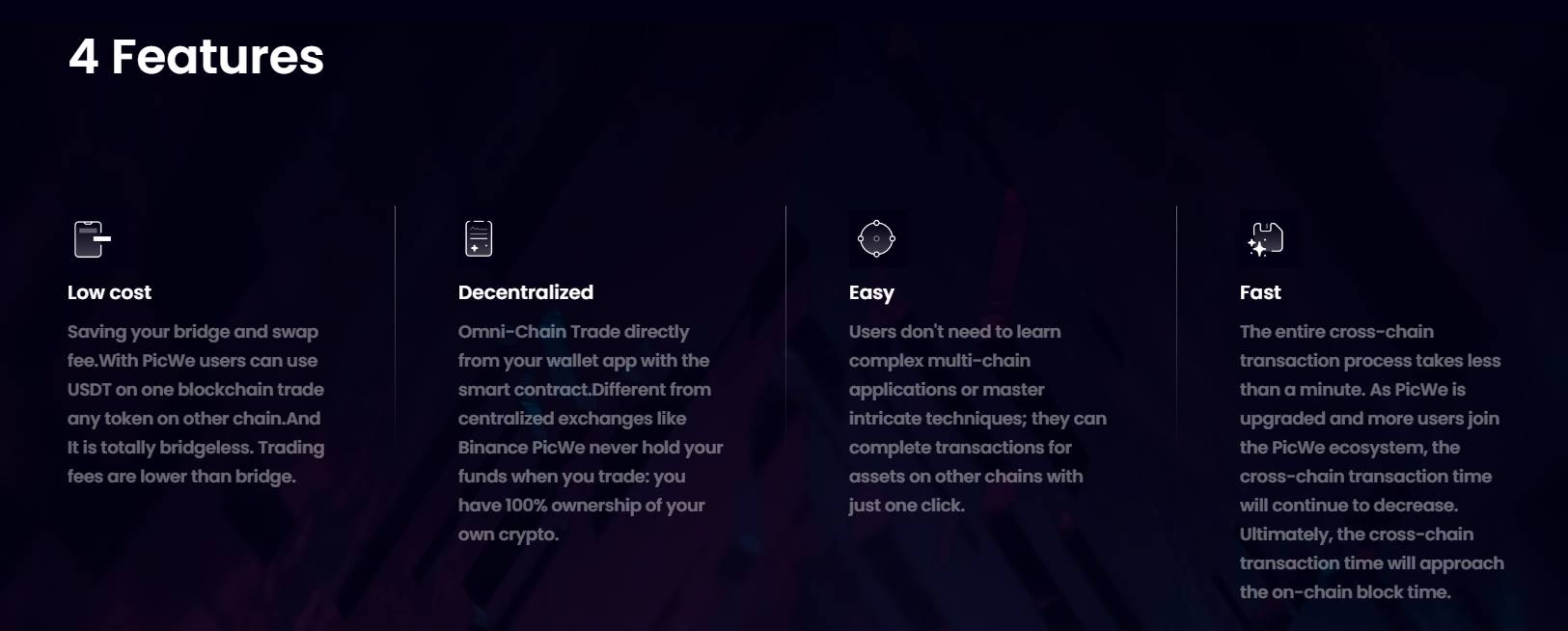
AI
RNDM: AI-driven Modular Liquidity Solution
RNDM combines AI technology with trading technology. Its core is a proprietary AI model called the curation engine, which runs on inference network nodes from Ritual and has been trained on order flow patterns from all major exchanges. This enables it to deeply understand and analyze market dynamics, providing users with smarter and more precise trading strategies.
The AI model serves as Agents, executing operations in various exchange vaults and dynamically adjusting parameters based on specific assets and exchange conditions. Currently, RNDM has launched two main Agents: Atlas and Ganesh. Atlas is a market-making assistant that has achieved a total trading volume of $130 million, while Ganesh is a sentiment analysis agent with a total trading volume of $500,000.
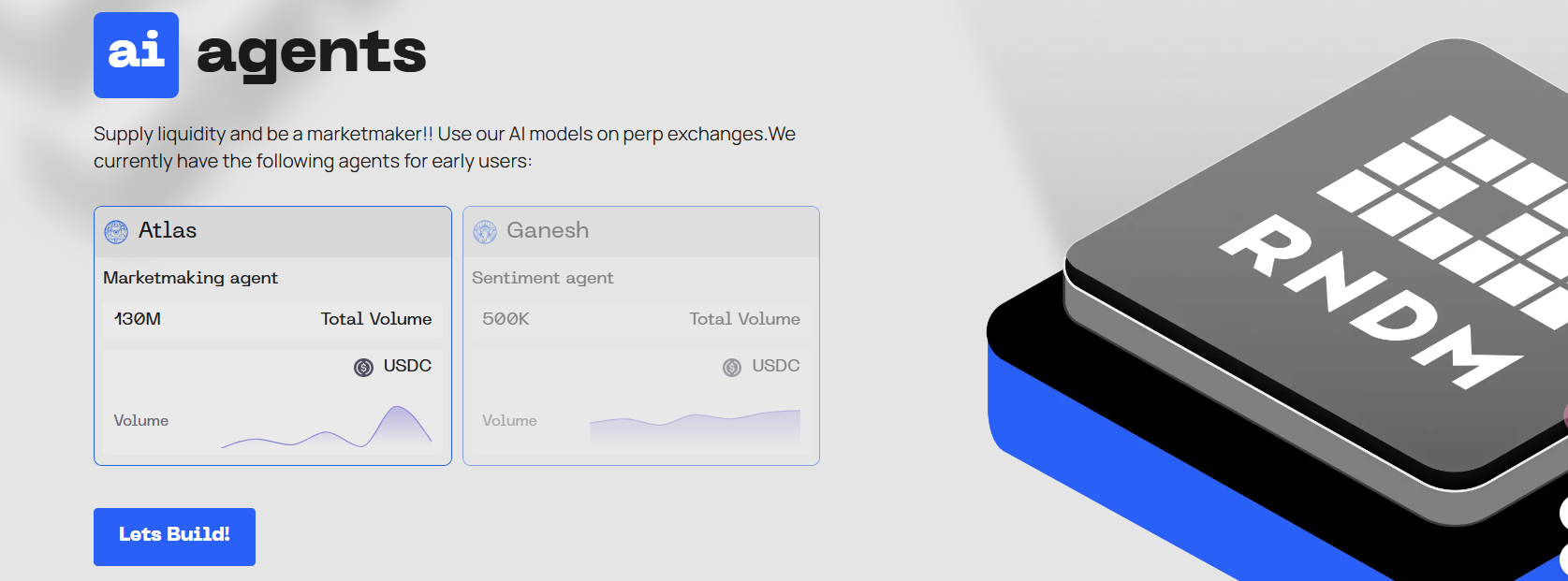
SocialFi
Podium: Web3 Social Audio Platform
Podium attempts to combine decentralized on-chain technology with audio social media. Currently, Podium is available on Google Play, but there is little systematic introduction about the project. From the publicly available information and user feedback, Podium resembles an on-chain version of Clubhouse + Google Meeting + podcast, supporting users to log in with centralized social accounts.
Movewiffrens (MWFs): A social media platform supporting paid content and paid chats
In addition to features like posting and interaction found on other SocialFi platforms, Movewiffrens introduces unique paid content and private chat functionalities.
Users can earn Frenspoints through activities on the platform and other platforms (like Twitter and Discord) to unlock paid content. Creators of paid content can set access levels and provide previews to attract users to use Frenspoints to view the full content. Users who mint the platform's PASS card, Frenspass, can use the private chat feature to have direct conversations with KOLs and celebrities.

NFTs/GameFi Seekers Alliance: Card Game
Seekers Alliance is a multiplayer battle collectible crypto card game developed by the Taiwanese team Hemi Rabbit Entertainment. The game is set in a fictional island world where players can choose to join one of three story-based factions.
The main gameplay includes card collection and battles. Players acquire cards through various means, build decks, and then battle against other players. The game offers various modes, including adventure mode and ranked play. The team has integrated on-chain technology into the card drawing feature, claiming to improve the transparency of the drawing process by making the drawing probabilities public on-chain and using third-party random generation results.

Simemes: Combining Meme Culture with GameFi
Currently, it is not open for public testing, and the official page only has an option to join the whitelist. The content on the official Twitter mainly revolves around creating memes based on trending topics. (Unclear what the basis for the award is…)
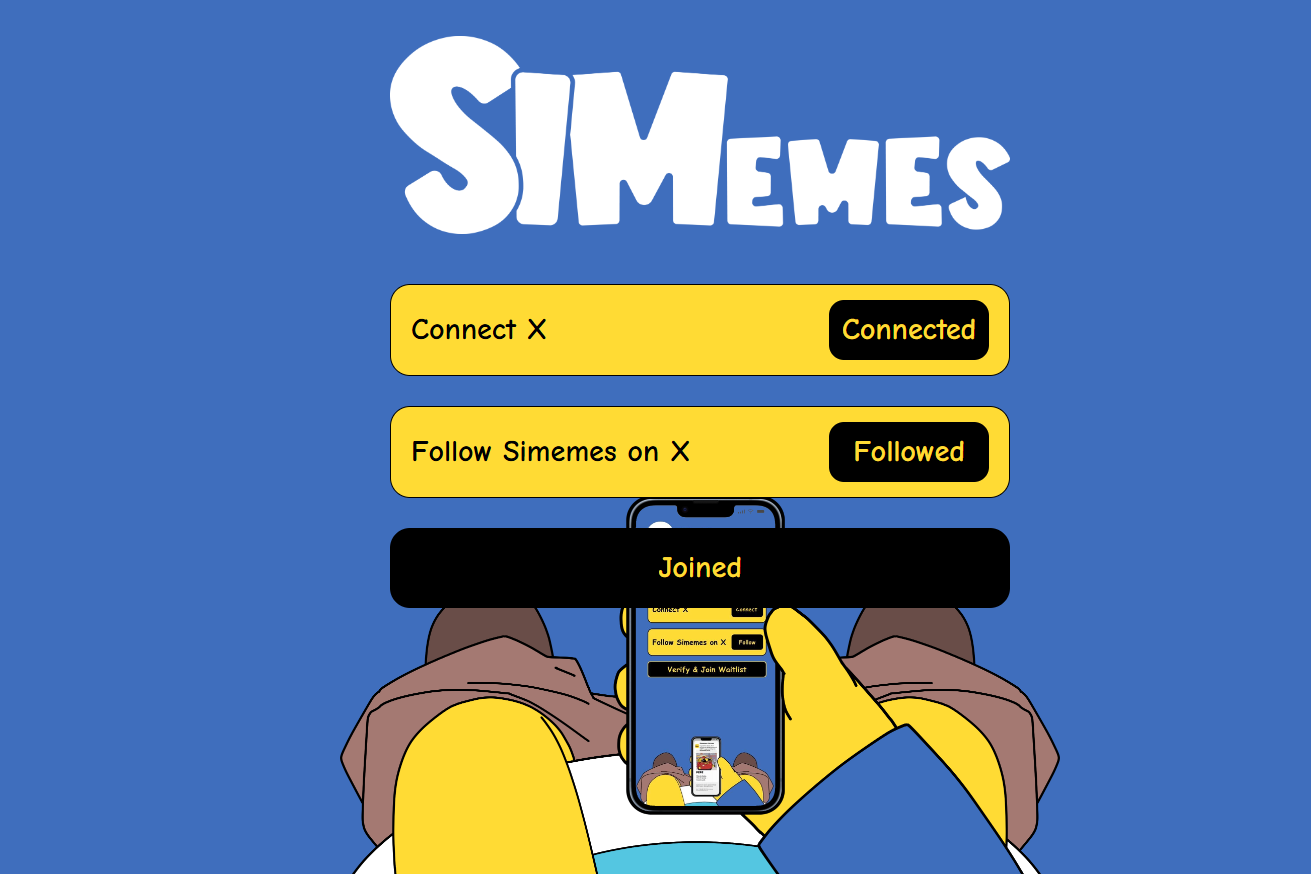
Infrastructure
Movide (By Sovide): An Online Integrated Development Environment for the Move Language
Movide is an online integrated development environment (IDE) specifically designed for the Move programming language, primarily aimed at blockchains using Move (such as Movement and Sui). The architecture of Movide is based on Solide (a larger development ecosystem). The core goal of Movide is to simplify the Move development process by providing a simple, lightweight user interface and a rich set of functional tools. Movide supports loading Move packages directly from GitHub or verified on-chain packages, allowing developers to complete the entire process of compiling, building, and deploying Move packages easily in the browser without complex local environment configurations, significantly improving development efficiency.
In addition to basic development features, Movide also offers powerful on-chain object management capabilities. Developers can easily load and manage on-chain objects through object IDs or transaction summaries. Movide supports multiple types of networks, including development, test, and main networks, providing developers with comprehensive testing and deployment options.

Scaffold Move: A Comprehensive dApp Building Toolkit
Scaffold Move is also an open-source toolkit designed for developers of the Move language. It is primarily used to simplify the process of building dApps on blockchains based on the Move language. This toolkit integrates technologies such as Move, Aptos TS SDK, Next.js, Tailwind CSS, and TypeScript.
Some key features of Scaffold Move include automated deployment scripts, module hot reloading, custom React hooks, and a Web3 component library, making it easier for developers to create and deploy Move modules and build interactive interfaces. It also provides wallet integration features, supporting connections to Aptos-compatible wallets.
Overall, Scaffold Move provides a practical development toolkit for the Move ecosystem, making it more convenient to build dApps.
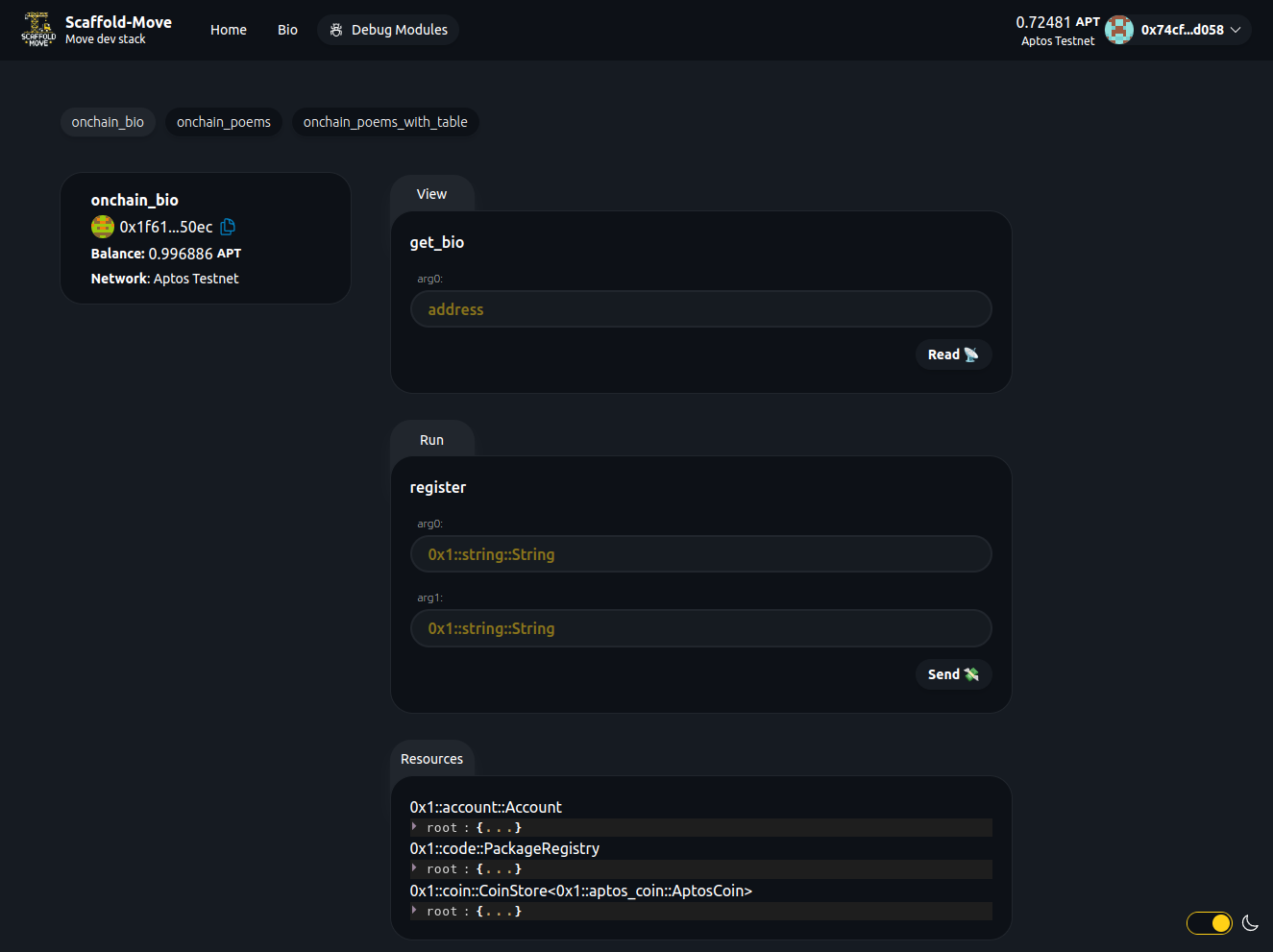
Summary
In summary, the awarded projects this time cover multiple key areas from infrastructure to application layers. In particular, the focus on cross-chain or full-chain solutions demonstrates the project teams' significant emphasis on innovating to simplify the difficulty of on-chain operations and lowering the entry barriers for on-chain applications or development.
免责声明:本文章仅代表作者个人观点,不代表本平台的立场和观点。本文章仅供信息分享,不构成对任何人的任何投资建议。用户与作者之间的任何争议,与本平台无关。如网页中刊载的文章或图片涉及侵权,请提供相关的权利证明和身份证明发送邮件到support@aicoin.com,本平台相关工作人员将会进行核查。



